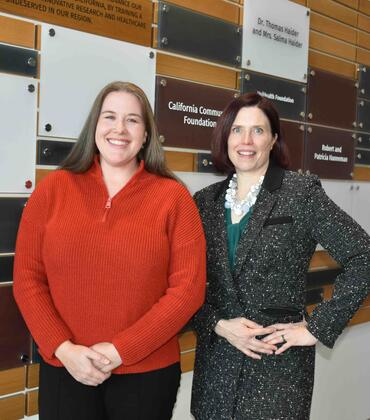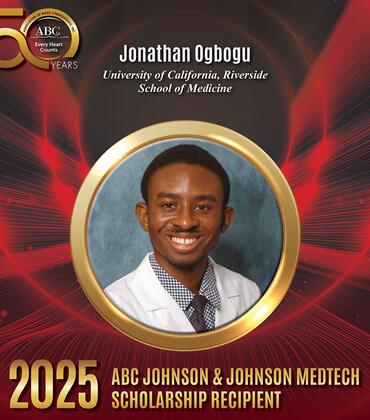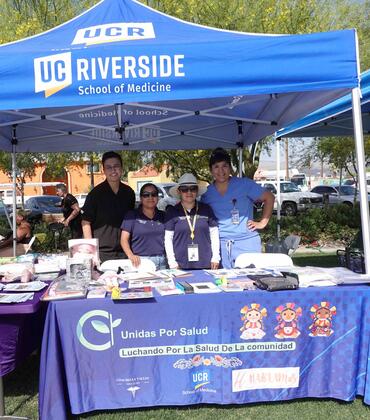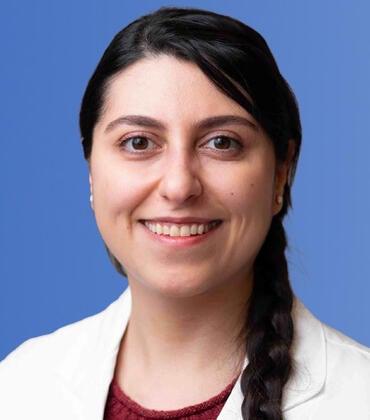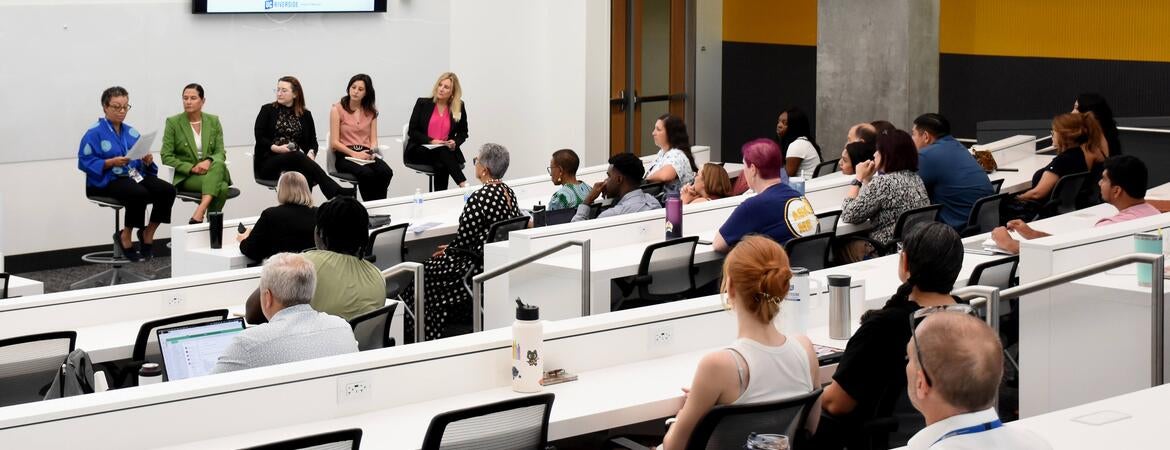
The UCR School of Medicine on Wednesday hosted the 2025 Celebration of Women in Medicine and Science, an annual event that recognizes women's advancements in those fields. This year's event featured Deborah Prothrow-Stith, MD, dean of the Charles R. Drew University of Medicine and Science College of Medicine and founding dean of its new MD degree program, as the keynote speaker.
Deborah Deas, MD, MPH, the vice chancellor for health sciences and the Mark and Pam Rubin dean of the School of Medicine, said in her welcome remarks that this year’s theme, “Women as Agents of Change,” was “especially meaningful.” “It captures the truth that women are not only contributors to medicine and science, but are leaders who shape the future of healthcare, research, and education,” she said. “When women lead, they open doors for others to thrive, they inspire progress, and they create lasting change.”
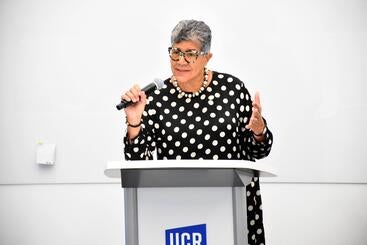
Prothrow-Stith’s keynote, “Women in Medicine: New Viewpoints Can Make a Big Difference,” reflected the idea of purposeful change. She shared a story about stitching up a young man in the emergency room when she was a medical student and hearing his plans to take revenge on the person who’d injured him. Her perceived failure to stop the threat to his and others’ health, she said, made her feel inadequate as a healthcare provider and led to her career focused on public health and violence prevention.
“When I think back, I try to understand, why was I the person to find that unusual or angering?” said Prothrow-Stith, noting that violence was a commonly recognized issue in the emergency room--yet that she personally knew many Black men who weren’t violent. “‘I couldn’t treat it as inevitable,” she recalled.
Her research and collaboration with others across the country helped lead to change, with increased recognition of the issue and new studies on violence and public health. “When you get new viewpoints at the table, change can happen in important ways, and medicine needs that now more than ever,” she said. “Don’t ignore that part of you that says, ‘Something’s wrong here, this doesn’t sound right, that’s not what I experienced.’”
She closed her talk by telling the audience that the best advice she had ever received was, “Get back in there and do it differently.”
The event’s panel discussion was moderated by Michelle Porche, EdD, director of Clinical Faculty Research Development and Scholarly Activity, and included Elizabeth A. Jacobs, MD, MPP, department chair and clinical professor of Internal Medicine; Erica Heinrich, PhD, assistant professor of Biomedical Sciences; Pamela Hunter, director of Medical Education at the SOM; and third-year medical student Emmi Deckard.
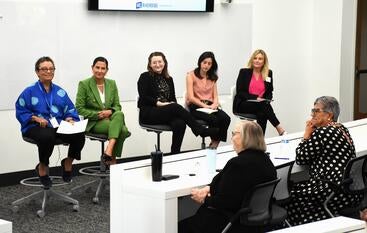
The panelists touched on topics including the role of mentorship and sponsorship in empowering the next generation of women, support for other women in taking risks, ways the current political climate inspires them to be agents of change, and advice for students or women starting their careers.
The panelists uniformly agreed on the importance of persistence, whether in building a career or pushing for change.
“When you talk about being persistent, people may ask, ‘How persistent?’” Heinrich said. She recalled a colleague telling her that they had submitted more than 200 National Institutes of Health grant applications during their career and only received five or six grants. “You look at successful leaders and think, surely they have a majority success rate, so hearing those stories is so helpful to understand how persistent you have to be,” Heinrich said.
“Change is incremental,” Jacobs added. “We want change yesterday, but I try to celebrate incremental change… because then you know you’re moving forward.”
The event, which was presented by the SOM's Office of Faculty Development and the Office of Strategic Initiatives, made up part of the school's celebration of the American Medical Association's Women in Medicine Month.
